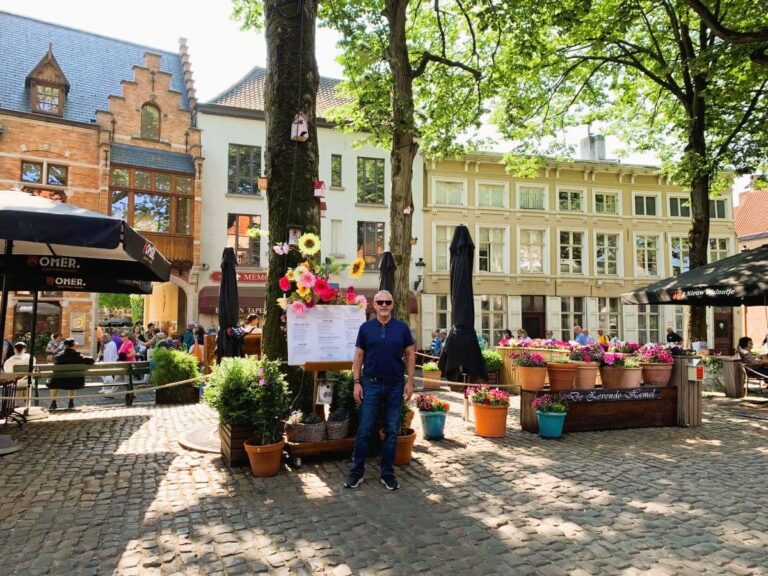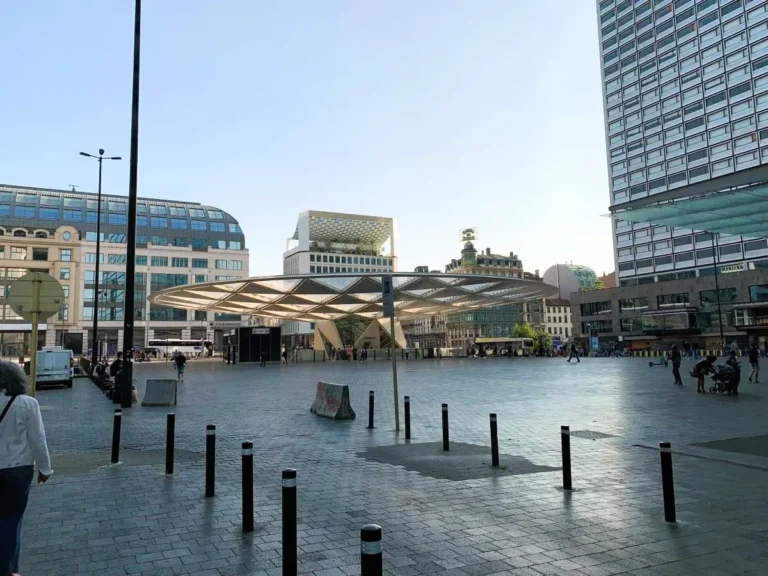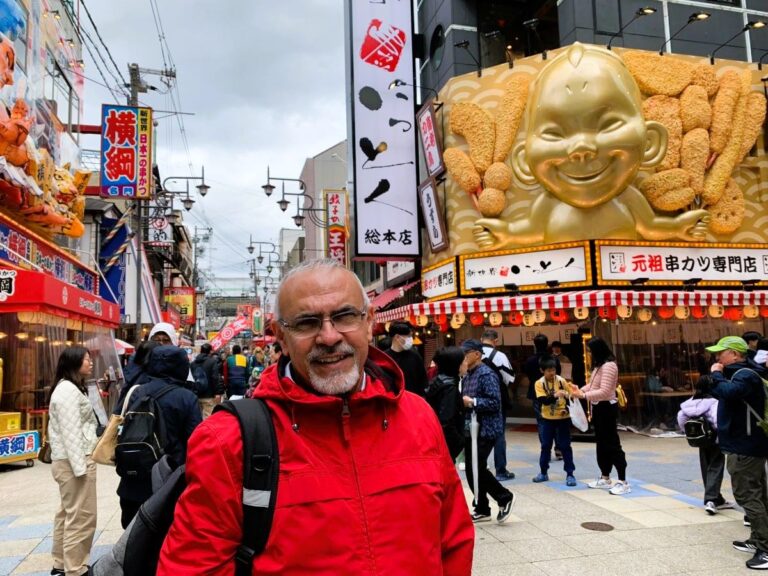Is Rio de Janeiro Safe? Essential Safety Tips for First-Time Visitors
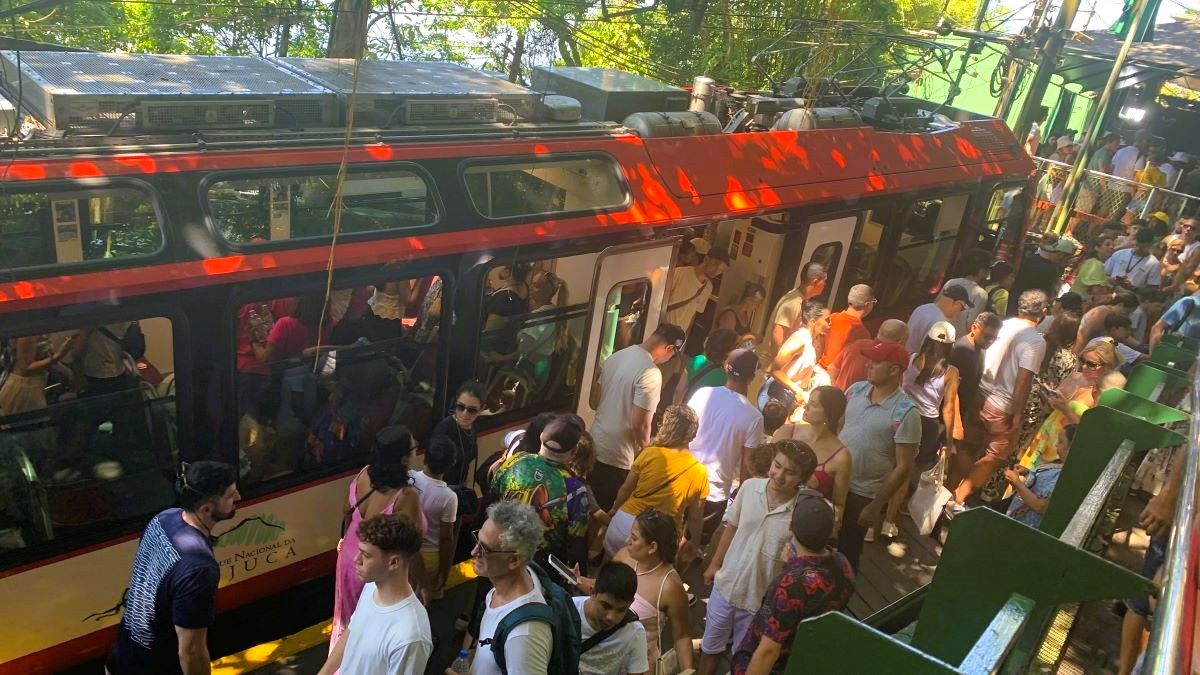
Are you thinking of visiting Rio de Janeiro? If so, I bet your biggest concern is, “Is Rio de Janeiro safe for tourists?”
We had the same concerns. When we were planning our trip to Rio de Janeiro in January of 2025, almost every blog and travel website we visited painted a picture of a city plagued by danger, warning travelers to be on high alert at all times. This gave us serious doubts.
But we went anyway. And I’m so glad we did because after spending 10 days in Rio, we realized it wasn’t as bad as we thought. Yes, crime exists (as it does in any major city), but the reality is that most tourist areas are relatively safe, with a strong police presence. If you use common sense and follow some simple safety precautions, Rio can be an enjoyable and rewarding destination.
From vibrant beaches to amazing attractions, there’s so much to enjoy in Rio de Janeiro, but knowing a few safety tips can make all the difference.

In this blog, I’ll share my thoughts on crime and safety in Rio based on my personal experience and some research that we did before going. I will also share some practical advice to help you explore confidently while keeping safety in mind.
Is Rio de Janeiro Safe For Tourists?
According to a news article from 2022, crime trends in Rio de Janeiro’s tourist areas, such as Copacabana, have shown mixed patterns in recent years.
In December 2022, the city implemented the Conjunto de Estratégias de Prevenção (CEP), a public safety program aimed at reducing crimes of opportunity in neighborhoods including Copacabana and Ipanema. This initiative focused on increased patrolling, urban requalification, and enhanced surveillance to deter street crimes like robberies and thefts.
Another news article reported that despite these efforts, crime statistics have varied. Between January and August 2024, the area encompassing Copacabana and Leme, served by the 12th and 13th Police Precincts, recorded 517 street robbery incidents, reflecting a 36% decrease compared to the same period in the previous year. However, cell phone robberies in the Copacabana region increased by 7%, with 1,825 cases in 2024 compared to 1,703 in 2023.
These figures indicate that while certain crime categories have declined in Copacabana, others, particularly property crimes like cell phone theft, have seen increases.
The implementation of safety programs has contributed to reductions in specific crimes, but challenges persist in fully curbing criminal activities in these tourist areas.
To give you some perspective, in Barcelona, Spain, in the first nine months of 2024, there were 60,367 thefts, down from 64,844 during the same period in 2023, marking a 6.9% decrease. Just goes to show that there is nothing extraordinary about the crimes in Rio de Janeiro. Many tourist destinations have similar challenges.
Understanding Safety Challenges in Rio de Janeiro
Speaking from personal experience now, I assure you Rio de Janeiro is quite safe for tourists, provided you are careful.
We had no issues at all. We were there for 10 days, and not once did we encounter any problems. And that is because we were careful and followed certain safety rules.
Understanding the potential safety issues in the city can help you make smarter decisions and enjoy your trip without unnecessary stress.
Let’s look at two key aspects of safety: petty theft and risky areas.
Petty Theft and Pickpocketing
Like any major city (think Europe), petty theft is one of Rio’s most common safety challenges, especially in tourist-heavy areas.
Although we did not personally witness any of it, people cautioned us about pickpockets and bag snatchers who often operate in crowded places like markets, public transport, and even the famous beaches. They’re opportunistic and rely on distraction tactics to catch travelers off guard.

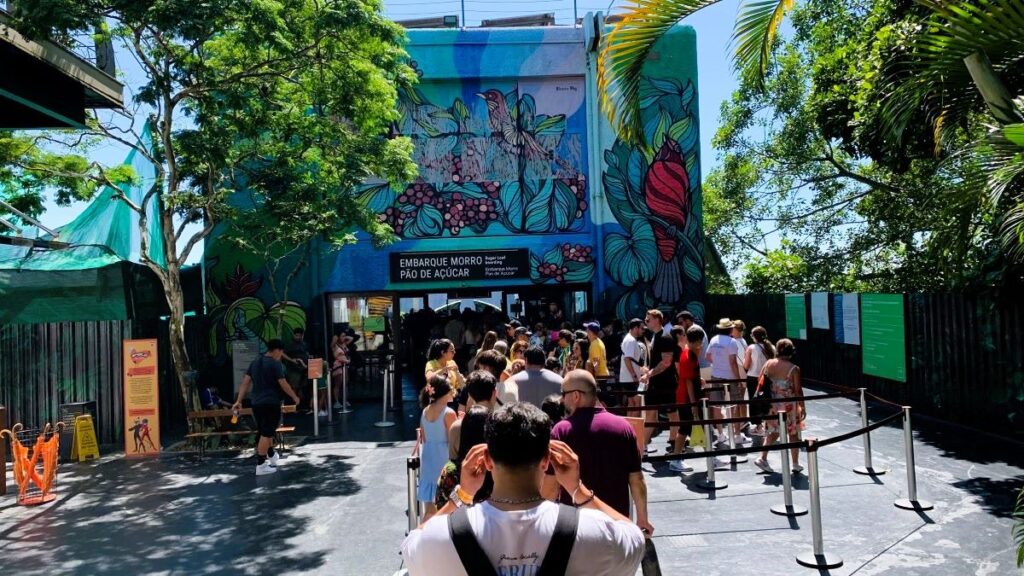
Here are some common tactics used by thieves in Rio:
- Distraction strategies: For instance, someone may spill something on you “accidentally” while their accomplice grabs your wallet.
- Targeting valuables: Fancy cameras, smartphones, and designer bags are major attractions.
- Crowd chaos: Carnival celebrations, outdoor concerts, and busy buses provide perfect cover for pickpockets.
To avoid becoming a target:
- Carry only essentials. Leave unnecessary valuables at your hotel.
- Use a money belt. It’s harder to access and keeps your cash secure.
- Stay conscious: Always keep bags and belongings where you can see or feel them.
- Blend in. Avoid flashy jewelry or branded clothing that screams “tourist.”
- Be mindful of your phone. This is very common. Thieves often snatch it from hands while walking or at outdoor cafes.
Notable Risky Areas and Hotspots
While parts of Rio are generally safe during the day, other spots are risky, especially after dark. It’s essential to know where to exercise extra caution or avoid entirely.
Some high-risk locations include:
- Copacabana beach at night: We stayed right across the Copacabana beach. Never had a problem. However, we were warned that after dark, the risk of mugging increases. So we were careful. We didn’t go to the beach at night. But from the hotel rooftop bar, we saw a few people swimming every night. There was a police presence at all times. But why tempt fate? Swim in the daytime and avoid going at night.
- Lapa in the early hours: Famed for its nightlife, it can be unsafe once crowds thin out.
- Downtown Rio (Centro): Once offices close, streets can become eerily quiet and vulnerable to petty crime.
- Favelas: Avoid, unless you go with a reputable tour group.
- Areas bordering favelas: Avoid, unless with a reputable tour group.
To stay safe in these spaces:
- Travel in groups at night, especially in less crowded areas like Copacabana beach or Centro.
- Use hotel-recommended taxis or ride-hailing apps after dark instead of walking.
- Stay within well-lit, busy streets and avoid secluded shortcuts.
For a deeper dive into specific neighborhoods to avoid, check out this guide.
Knowing the risks and taking the right precautions can make all the difference. With situational awareness, you can focus less on potential trouble and more on enjoying Rio’s stunning sights and rich culture!
Essential Safety Tips To Enjoy Rio’s Beautiful Beaches

Rio de Janeiro’s beaches are world-famous for their stunning scenery, vibrant culture, and lively atmosphere.
However, as with any major tourist destination, it’s important to stay aware of safety concerns.
Here are some essential tips to keep in mind when visiting the beaches of Rio:
1. Watch Your Belongings
Petty theft is common on popular beaches like Copacabana and Ipanema. To minimize risk:
- Avoid bringing valuables (jewelry, expensive phones, large amounts of cash).
- Use a waterproof pouch to keep essentials with you when swimming.
- If possible, go with a group and take turns watching over belongings.
- Choose a spot near lifeguard stations or kiosks where there is more security presence.
2. Be Aware of the Water Conditions
The Atlantic Ocean can have strong currents and unpredictable waves.
- Pay attention to the red, yellow, and green flags on the beach that indicate water conditions.
- If caught in a rip current, swim parallel to the shore instead of trying to fight against it.
- Lifeguards (“Salva-Vidas”) are stationed along major beaches—stay within their designated areas.
3. Stay in Safe Areas
Some sections of Rio’s beaches are safer than others.
- Stick to well-frequented areas like Copacabana, Ipanema, and Leblon.
- Avoid deserted beaches, especially at night.
- Be cautious in less touristy areas, where crime can be more frequent.
4. Be Cautious When Buying from Beach Vendors
Rio’s beaches are filled with vendors selling snacks, drinks, and souvenirs.
- While most are legitimate, be cautious of overpriced items or scams.
- Always agree on the price before purchasing.
- Stick to well-known food and drink stands to ensure hygiene and avoid foodborne illnesses.
5. Stay Hydrated and Use Sunscreen
Rio’s sun can be intense, so protect yourself from sunburn and dehydration.
- Apply high-SPF sunscreen regularly.
- Wear a hat and sunglasses for extra protection.
- Drink plenty of water, especially if consuming alcohol.
6. Avoid the Beach After Dark
While Rio’s beaches are lively during the day, they can be risky at night.
- Crime rates increase after sunset, so avoid walking alone on the beach after dark.
- If you must be out late, stay close to well-lit, busy areas and take a taxi or ride-share service instead of walking.
7. Respect Local Customs and Laws
Rio’s beach culture has its own set of unwritten rules.
- Avoid excessive public displays of wealth.
- Topless sunbathing is not widely accepted, though thong bikinis are common.
- Drinking alcohol is allowed, but excessive drunken behavior can attract unwanted attention.
By following these safety tips, you can enjoy Rio’s beautiful beaches while staying secure and stress-free. Have fun and soak up the sun, but always stay aware of your surroundings!
Top Safety Tips for Rio de Janeiro for Staying Secure
These safety tips should be as much a part of your travel plans as booking accommodations or an itinerary.
The vibrant culture and beautiful attractions come alive when you explore them wisely and securely.
Below, I’ve shared some practical tips to help you stay smart and safe.
Dressing and Carrying Valuables Appropriately
The way you dress and carry your belongings can significantly influence your safety in Rio de Janeiro. Flashy outfits and visible high-end accessories can attract unwanted attention, especially in crowded or tourist-filled areas.
- Opt for neutral, simple clothing that doesn’t make you stand out. Leave your Rolex, Louis Vuitton handbag, and gold chains, at home.
- If you must carry a bag, choose an slash-proof cross-body bag and always keep it in front of you. This way, it’s harder for grab-and-run snatchers to succeed.
- Avoid keeping wallets or phones in your back pockets—pickpockets love an easy grab.
- Carry only essentials when heading out. Keep your passport locked in a safe and carry a photocopy instead.
Using Technology Safely
Keeping in touch or using your phone for navigation is essential, but it also requires some caution. In Rio, openly using smartphones in public can make you a target for theft.
- Avoid pulling out your phone in crowded areas or while walking along the street. Smartphones are among the most frequently stolen items, especially when tourists aren’t cautious. Consider stepping into a café or store if you need to check your device.
- Download maps beforehand to avoid fumbling online in public spaces.
- Leave your camera in your bag while not in use, and avoid flashy models dangling from neck straps.
Opting for Reliable Transportation
Safety is key when picking transportation options—whether you’re using taxis, rideshare apps, or public transit.
- Always choose licensed or registered taxis at taxi stands or hotels. Don’t accept rides from random drivers offering “taxi services” in the streets.
- Rideshare apps like Uber are popular and considered one of the safest modes of transport in Rio. Double-check the driver info and car plate before hopping in.
- When using public transportation, stick to the daytime and avoid carrying valuables openly. Certain buses and metro lines can get crowded and chaotic, presenting opportunities for pickpockets. Avoid using the metro or buses at night.

Prioritizing Group Travel and Well-Lit Areas
There’s safety in numbers, and this couldn’t be truer when exploring Rio de Janeiro. Many parts of the city are vibrant, alive, and perfectly safe during the day, but solo wandering or poorly-lit streets can increase risks.
- Travel in a group whenever possible, especially at night or in less familiar neighborhoods. A group offers not only safety but an extra pair of eyes on your surroundings.
- Stick to well-lit and busy areas at night, like main streets or plazas with foot traffic. Avoid shortcuts or alleyways, even if they appear deserted or faster.
- If heading out for Rio’s nightlife scene, like the bars in Lapa, plan to leave before it gets too late, and always use trusted transportation back to your hotel.
This simple habit of sticking to well-lit, busier areas alone can give you extra peace of mind—ensuring a more enjoyable and carefree visit to the city.
What to Avoid and How to React
When exploring Rio de Janeiro, being aware of what to avoid and knowing how to respond to unexpected situations can greatly enhance your safety.
From steering clear of risky behaviors to dealing confidently with theft, it’s all about preparation and a calm mindset.
Avoiding Specific Situations
Rio is a thrilling city, but not every experience advertised may be safe or genuine. Certain actions and situations could expose you to risk, so here are some key things to watch out for:
- Accepting drinks from strangers: This is a no-brainer! While Rio’s nightlife is vibrant and inviting, never accept drinks from someone you don’t know. Spiked drinks can lead to dangerous situations. Always watch your drink being poured or stick to bottled beverages.
- Exploring favelas without a guided tour: Favelas may be culturally rich and fascinating, but many remain controlled by local criminal groups. If you must visit, only book with licensed and reputable tour operators who have permission to guide tourists safely. (It’s best to avoid them altogether in my opinion)
- Unauthorized tour guides or street hustlers: Some individuals may approach offering “cheap” tours, but these often lack safety oversight, and could even lead to scams. Stick to verified professionals from trusted companies or those recommended by your hotel.
Responding to Theft or Trouble
Just to remind you that my wife and I spent 10 days in Rio and never saw anything bad happen to anyone. We visited all the attractions, went to all kinds of restaurants, and enjoyed many beaches and bars. We found Rio de Janeiro to be as safe as any other city anywhere in the world. But every time we mention our trip, the first thing that people ask us is, “Is Rio de Janeiro safe for tourists?”
Even though it’s mostly safe, sometimes, even with the best preparation, unexpected incidents like theft or scams can happen. Knowing how to react can limit losses and keep you safe:
- Stay calm and cooperate if confronted: If someone attempts to rob you, prioritize your safety over your belongings. Street muggers often just want valuables—they’re unlikely to harm you if you hand things over quickly.
- Secure important numbers: Before traveling, save the contact information for your country’s embassy, credit card company, and local police. You’ll need these in case your wallet, passport, or cards are stolen.
- File a police report when needed: If you’re pickpocketed or mugged, file a “boletim de ocorrência,” the Brazilian version of a police report. This can help with travel insurance claims.
- Protect digital and financial information: Immediately report stolen bank cards and change important account passwords. A stolen phone could potentially compromise sensitive accounts if not addressed quickly. Learn more about securing your finances in these situations here.
- Reach out for support: Don’t hesitate to inform your accommodation or local authorities for guidance and help. Many hotels and hostels have staff familiar with common issues and recovery processes for tourists.
By staying informed and calm, you’ll not only protect yourself but also be able to move on and continue enjoying all that Rio has to offer!
Cultural Awareness to Enhance Safety
When visiting Rio de Janeiro, understanding the local culture can make a world of difference in how safe and comfortable you feel.
Familiarizing yourself with basic Portuguese phrases and social customs allows you to navigate the city more effectively, avoid misunderstandings, and even build meaningful connections with locals.
Here’s how cultural awareness plays a vital role.
Learning Basic Portuguese Phrases
In Rio, English isn’t widely spoken outside of tourist hotspots, so learning a few basic Portuguese phrases is incredibly helpful. This can be a lifesaver when asking for directions, ordering food, or even haggling in local markets. Plus, locals often appreciate tourists who make an effort to speak their language—it shows respect and goodwill.
Here are some essential phrases to know:
- Bom dia / Boa tarde / Boa noite: Good morning / Good afternoon / Good night
- Por favor: Please
- Obrigado / Obrigada: Thank you (for males/females)
- Quanto custa?: How much does it cost?
- Onde fica…?: Where is…?
Starting your trip with some key phrases is easy thanks to online resources like this guide.
Not only does this break language barriers, it reduces the likelihood of confusion when communicating with locals. Think of it as your portable safety net in an unfamiliar environment.
Understanding Social Etiquette
Cultural missteps can often make tourists stand out in ways they’d rather avoid. To blend in and enhance your safety in Rio de Janeiro, it’s crucial to be aware of some basic social norms and etiquette.
Here are a few important tips (that we learnt while researching whether Rio de Janeiro was safe for tourists):
- Greetings and personal space matter: Brazilians are warm and tactile. While greetings often include handshakes, hugs, or cheek kisses, it’s polite to mirror their level of friendliness rather than coming across as overly reserved.
- Clothing choices: Rio has a relaxed vibe, but dress appropriately for the setting. Beachwear should stay at the beach. When heading to restaurants or public spaces, casual-yet-neat clothing helps you appear respectful.
- Respect their time-consciousness: In Brazil, being a few minutes late is generally acceptable, especially in social situations. However, using exaggerated patience is key—don’t show frustration over delays.
- Dining customs: When eating at a restaurant or someone’s home, don’t let formal cutlery rules stress you out. Just enjoy the food, but don’t forget to thank the host.
Small efforts to show cultural awareness can create a more positive experience. To get a deeper insight into Brazilian etiquette, this resource covers helpful dos and don’ts for travelers in the country. Respecting these norms not only allows you to immerse yourself in the culture but also reduces the risk of unwanted attention by blending in naturally.
Conclusion
So, to answer the question, “Is Rio de Janeiro safe for tourists?” It is definitely safe.
It is an incredible destination that offers unforgettable experiences, vibrant culture, and stunning scenery. While questions about safety often come up—especially for first-time visitors—being prepared makes all the difference.
Knowing what areas to avoid, keeping your belongings secure, and blending in with the local culture can transform apprehension into confidence.
Staying aware and cautious doesn’t mean you should stress excessively. Rather, it allows you to explore with peace of mind and focus on enjoying everything Rio has to offer.
Whether it’s relaxing on Copacabana Beach or taking in breathtaking views from Sugarloaf Mountain, this city has so much waiting for you.
Share your thoughts or experiences in the comments below. Or if you have any questions, don’t hesitate to ask.
Hope you have a fantastic and SAFE trip to Rio de Janeiro!
Related Posts:
Recent Posts:
-
A Perfect Day Trip to Bruges From Brussels: A Simple Train Plan and Walking Route
If you’re planning a trip to Belgium and short on time, a Day Trip to Bruges from Brussels is a great idea. In just about an hour by train, you can swap the busy streets of the capital for cobblestone lanes, peaceful canals, and storybook buildings that feel frozen in time with medieval architecture. Often…
-
Where to Stay in Brussels: The Best Neighborhoods for Every Travel Style
Choosing where to stay in Brussels matters more than it does in many European capitals. The city is compact, but the atmosphere changes quickly from one neighborhood to the next. Picking the right base makes exploring Brussels easier and far more enjoyable. This guide helps you pick the right base by vibe, budget, and travel…
-
15 Best Things to Do in Brussels for First-Time Visitors (2026)
Brussels often surprises visitors because it doesn’t fit the expectations people arrive with. Many travellers assume it’s merely an administrative capital or a brief stopover between Paris and Amsterdam. In reality, it offers a lot, and there are many fun things to do in Brussels. For a first visit, plan to spend 1 to 3…
-
Belgium Travel for First-Time Visitors (2026): Easy Trains, Medieval Cities, and Great Food
Belgium might be small, but it delivers far more than its size suggests—historic cities, beautiful architecture, world-famous food, and some of the best beer you’ll ever taste. Belgium travel is surprisingly easy. My wife and I spent four days there in 2023 as part of a train journey through eight European countries. It’s one of…
-
Slovenia Travel Guide: Everything You Need to Know Before You Go
Slovenia may be small, but it packs in a lot. Think emerald lakes, mountain scenery, charming old towns, underground caves, and even a short but beautiful coastline. It’s clean, safe, easy to travel, and perfect for first-time visitors to Europe or travelers who want nature without the crowds. This Slovenia travel guide covers everything you…
-
Where to Stay in Ljubljana (Best Areas for First-Time Visitors)
Planning a trip to Ljubljana and not sure where to stay? This guide breaks down the best neighborhoods for first-time visitors, including hotel recommendations for every budget — all within walking distance of the main sights. Choosing where to stay in Ljubljana is mostly about matching the right area to your budget and travel style…



